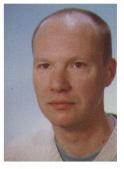Conservatives
Some time ago NRC published a lengthy opinion piece arguing that conservatism as a political force in Dutch politics has failed. Bart-Jan Spruyt, the spokesperson for the self-acclaimed conservative think-tank, the Burke Foundation, said that the opportunity for a political change towards conservativism was lost. A plethora of grand egos within the 'movement' has resulted in no less than five small rightist parties contending the upcoming elections. Conservatives, then, would not unite behind a common banner and assert their influence upon Dutch politics.
It is interesting to find out what exactly is meant by 'conservativism' but these people. As in any actual political movement, there are a lot of deviations of the true doctrine, by which I mean the ideas put forward by people like Edmund Burke. This is the same in the Netherlands. Self-acclaimed conservativists include populists, like the Rotterdam ex-councillor Marco Pastors, Christians, free-market enthusiasts (like Mr. Spruyt) and culture pessimists like the Leiden law professor Andreas Kinneging. However, if one were to take a stiff drink, squint one's eyes and inspect the writings and sayings of these people against the setting sun, from a distance, there are some common themes.
First, all of them are concerned about 'the Dutch way of life'. They find it of overwhelming importance to figure out what this way of life is as well as teaching it (especially to migrants) and ensuring it will continue to exist.
Secondly, they want a free market on the one hand, but a strong government that has all kinds of powers to guard a homogenous cultural climate.
Third, some (not all) are critical of typical Dutch achievements, such as gay marriage, abortion, euthanasia, legalized cannabis use and then some.
On the face of it, this looks very much like the neo-conservative agenda that has been driving much discussion (not to mention politics) in the USA. The same curious mix between a strong attachment to a tradition that is for the most part invented and an enthusiasm for the free market characterizes both positions. Mr. Spruyt has spent some months in the USA at the invitation of a conservative think tank and has become an enthusiastic defender of American neo-conservatism in the Dutch media.
However, it should be noted that many if not most of the beliefs of the Dutch conservatives, would be considered moderately liberal in the USA. For example, the late Mr. Fortuyn considered Dutch attitudes towards homosexuals as typical Dutch achievements and resented attempts to introduce homophobia in the public debate. Compare this to the clear homophobia among US republicans and their christian backers. Or what to think of the call for more supervision on corporate business, the call for an ethical code of conduct, etc.
In short, when in Nether-Germany people talk of 'conservativism', my hunch is that they mean many of the things that US (moderate) liberals think of as typically liberal... Perhaps we should abolish the term altogether.
It is interesting to find out what exactly is meant by 'conservativism' but these people. As in any actual political movement, there are a lot of deviations of the true doctrine, by which I mean the ideas put forward by people like Edmund Burke. This is the same in the Netherlands. Self-acclaimed conservativists include populists, like the Rotterdam ex-councillor Marco Pastors, Christians, free-market enthusiasts (like Mr. Spruyt) and culture pessimists like the Leiden law professor Andreas Kinneging. However, if one were to take a stiff drink, squint one's eyes and inspect the writings and sayings of these people against the setting sun, from a distance, there are some common themes.
First, all of them are concerned about 'the Dutch way of life'. They find it of overwhelming importance to figure out what this way of life is as well as teaching it (especially to migrants) and ensuring it will continue to exist.
Secondly, they want a free market on the one hand, but a strong government that has all kinds of powers to guard a homogenous cultural climate.
Third, some (not all) are critical of typical Dutch achievements, such as gay marriage, abortion, euthanasia, legalized cannabis use and then some.
On the face of it, this looks very much like the neo-conservative agenda that has been driving much discussion (not to mention politics) in the USA. The same curious mix between a strong attachment to a tradition that is for the most part invented and an enthusiasm for the free market characterizes both positions. Mr. Spruyt has spent some months in the USA at the invitation of a conservative think tank and has become an enthusiastic defender of American neo-conservatism in the Dutch media.
However, it should be noted that many if not most of the beliefs of the Dutch conservatives, would be considered moderately liberal in the USA. For example, the late Mr. Fortuyn considered Dutch attitudes towards homosexuals as typical Dutch achievements and resented attempts to introduce homophobia in the public debate. Compare this to the clear homophobia among US republicans and their christian backers. Or what to think of the call for more supervision on corporate business, the call for an ethical code of conduct, etc.
In short, when in Nether-Germany people talk of 'conservativism', my hunch is that they mean many of the things that US (moderate) liberals think of as typically liberal... Perhaps we should abolish the term altogether.


0 Comments:
Post a Comment
<< Home